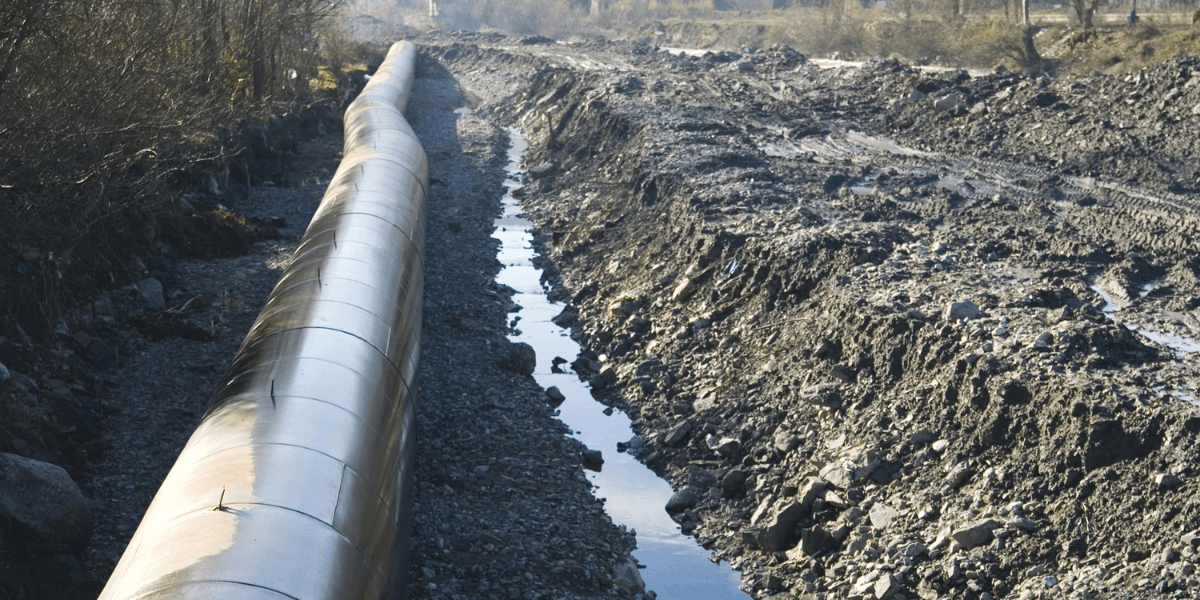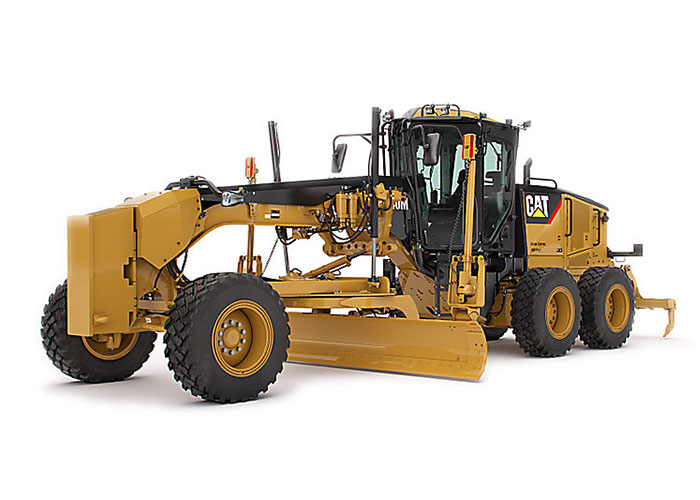A Comprehensive Guide to the Various Kinds Of Oil Field Equipment and Pipeline Equipment Available
The oil and gas industry relies heavily on customized equipment for effective removal and transport. Various sorts of machinery, from piercing rigs to tank, play crucial duties in this intricate process. Each piece of equipment offers distinctive features that add to general functional success. Recognizing these components is necessary for any person entailed in the sector. As the industry develops, so as well do the innovations that support it. What improvements are on the horizon?

Drilling Rigs: The Backbone of Oil Exploration
Drilling rigs act as the essential machinery in the domain name of oil expedition, allowing business to gain access to hydrocarbon reserves hidden deep beneath the Earth's surface area. These rigs come in numerous types, consisting of land rigs, offshore rigs, and mobile devices, each made to run in details environments. Outfitted with advanced innovation, piercing rigs can penetrate geological formations with accuracy, guaranteeing reliable resource extraction. The architectural integrity and operational capabilities of these rigs are essential, as they need to stand up to severe conditions and considerable stress. Furthermore, the option of a drilling rig affects the overall task cost and timeline, making it a crucial factor to consider for oil companies seeking to maximize their expedition initiatives and optimize performance in their procedures.
Pumps: Vital for Fluid Activity
In the oil removal procedure, the duty of pumps is significant, helping with the motion of fluids throughout different phases of manufacturing. Pumps are necessary for moving unrefined oil, water, and various other fluids from below ground tanks to the surface and after that through pipes to refineries. They can be found in numerous kinds, including centrifugal, favorable displacement, and completely submersible pumps, each offering details functions based on the liquid features and functional requirements. Centrifugal pumps are commonly made use of for their performance in high-flow applications, while favorable displacement pumps succeed in taking care of thick liquids. The choice of pump influences general efficiency, functional security, and maintenance prices. Proper option and maintenance of pumps are vital for maximizing production and reducing downtime in oil field procedures.
Shutoffs: Controlling Flow and Pressure

Shutoffs play an essential function in handling the circulation and stress of liquids within oil areas and pipelines. Various kinds of shutoffs serve distinctive applications, each designed to meet certain functions essential for effective operation - Superior Rentals fusion machines. Comprehending the features and usages of these valves is vital for optimizing system efficiency and safety and security
Kinds of Valves
Necessary parts in oil field procedures, valves play a vital function in managing the circulation and pressure of liquids within pipes and tools. Numerous types of valves are utilized to satisfy the diverse needs of oil and gas production. Typical types include gateway shutoffs, which supply a straight-line flow and very little pressure drop; globe shutoffs, understood for their strangling abilities; and sphere valves, acknowledged for their quick on/off control. Additionally, check valves prevent heartburn, while butterfly shutoffs offer a lightweight option for managing circulation. Each shutoff type is created with particular products and setups to stand up to the rough problems commonly located in oil fields, making certain dependability and efficiency in procedures. Understanding these types is crucial for reliable system management.
Valve Applications and Features
While numerous kinds of valves offer unique purposes, their key applications rotate around controlling circulation and pressure within oil and gas systems. Shutoffs such as gate, world, and ball shutoffs control fluid activity, making sure peak performance and security. Gate shutoffs are commonly made use of for on/off control, providing marginal flow resistance. Globe shutoffs, on the other hand, deal accurate circulation regulation, making them appropriate for throttling applications. Sphere shutoffs are favored for their fast operation and tight securing capabilities. In addition, stress alleviation shutoffs are essential for stopping system overpressure, securing devices honesty. In general, the ideal selection and application of valves improve functional efficiency, ensuring the trusted transport of oil and gas via pipelines and processing centers.
Compressors: Enhancing Gas Transport
Compressors play a crucial duty in the efficient transportation of natural gas, guaranteeing that it relocates efficiently via pipes over long distances. These gadgets increase the pressure of gas, enabling it to get over friction and altitude adjustments within the pipeline check here system. Furthermore, compressors promote the balancing of supply and demand, suiting variations in consumption and manufacturing prices. Numerous sorts of compressors are utilized in the industry, including centrifugal, reciprocating, and rotary screw compressors, each offering distinct benefits based upon the functional demands. Regular maintenance of these compressors is important to optimize performance and minimize downtime, inevitably contributing to a trusted gas transportation network. Their critical feature underscores the significance of compressors in the general oil and gas infrastructure.
Storage Tanks: Safe and Reliable Fluid Administration
Reliable transport of all-natural gas relies upon numerous sustaining systems, one of which is the proper monitoring of tank. These containers play a crucial duty in securely having liquids, making sure that operational performance is preserved while reducing environmental dangers. Constructed from durable products, they are made to withstand high pressures and harsh components. Appropriately sized and tactically located, tank promote the smooth circulation of all-natural gas and other fluids, avoiding bottlenecks in supply chains. Regular upkeep and surveillance are vital to identify leakages or structural issues, advertising security and compliance with governing criteria. Eventually, the reliable administration of tank is important for the total stability and reliability of the oil and gas market's liquid handling systems.
Pipeline Solutions: Framework for Transportation
Pipeline systems work as the backbone of the oil and gas sector, helping with the reliable transport of hydrocarbons over huge distances. These systems contain various elements, including pipelines, shutoffs, pumps, and compressors, all thoroughly developed to assure seamless flow. The materials used in pipeline building and construction, frequently steel or high-density polyethylene, are picked for durability and resistance to rust. Pipeline networks can span across land and water, linking manufacturing sites to refineries and warehouse. Additionally, progressed innovation makes it possible for real-time monitoring of flow prices and pressure degrees, boosting functional effectiveness. The calculated placement of these pipes lessens environmental effect while making best use of resource ease of access, thus playing a necessary duty in meeting energy demands internationally.
Safety And Security Equipment: Ensuring Worker and Environmental Management
The procedure of pipeline systems, while important for energy transport, additionally offers substantial safety challenges for workers and the atmosphere. Security devices plays a substantial duty in mitigating these dangers. Personal protective devices (PPE) such as helmets, handwear covers, and non-slip shoes safeguards employees from physical threats. In addition, gas detection systems monitor for leakages, ensuring that dangerous substances do not pose a danger to employees or the bordering ecological community. Emergency shutdown systems are critical for swiftly stopping procedures throughout a crisis, preventing prospective disasters. Spill containment products, consisting of absorbents and barriers, are essential for reducing ecological impact. On the whole, buying all-encompassing security equipment is important for maintaining operational honesty and safeguarding both employees and the environment in the oil and gas field.

Regularly Asked Questions
Exactly how Do I Select the Right Oil Field Equipment for My Task?
Picking the appropriate oil area equipment includes examining task specifications, budget plan restrictions, and functional requirements. Think about aspects such as tools reliability, compatibility with existing systems, and the provider's online reputation to guarantee peak performance and safety.
What Are the Upkeep Demands for Oil Field Equipment?
Maintenance needs for oil area devices consist of normal assessments, lubrication, and timely repairs. Operators needs to additionally follow maker guidelines, monitor efficiency metrics, and warranty compliance with safety laws to boost long life and effectiveness.

How Can I Make Sure Conformity With Environmental Laws?
To assure conformity with ecological regulations, companies should carry out routine audits, carry out finest techniques, purchase training, keep correct documents, and remain updated on regulation (Superior Oilfield pipeline equipment rentals). Partnership with ecological companies can likewise boost adherence to policies
What Is the Average Life Expectancy of Pipeline Equipment?
The typical lifespan of pipeline tools usually ranges from 20 to 50 years, relying on variables such as worldly high quality, environmental problems, and upkeep methods. Regular evaluations can greatly influence long life and functional efficiency.
How Do I Securely Deliver Oil Field Equipment to Remote Locations?
Delivering oil field tools to remote places requires mindful preparation, including course evaluation, securing licenses, making use of proper vehicles, and making certain security protocols are adhered to. Appropriate training and communication amongst crews are essential for effective transport.